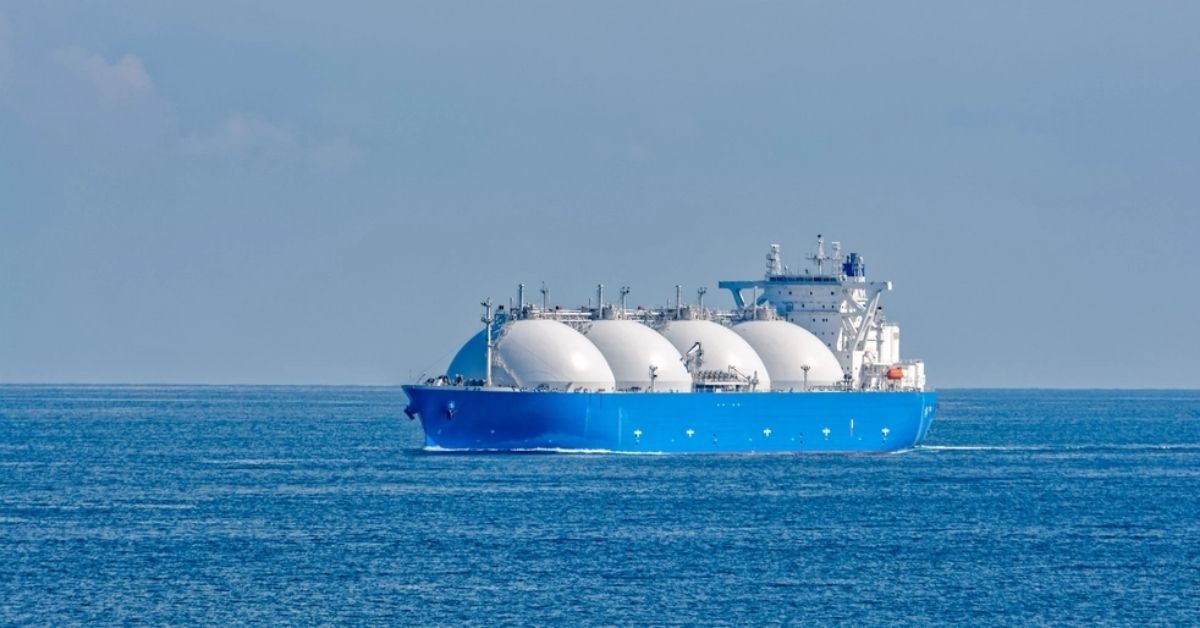China is making fast inroads in the market for newbuild liquefied natural gas (LNG) tankers as local and foreign shipowners turn to its shipbuilders for the specialty vessels because long dominant yards in South Korea are fully booked.
Three Chinese shipyards – only one of them having experience building large LNG tankers – won nearly 30% of this year’s record orders for 163 new gas carriers, claiming ground in a sector where South Korea usually captures most of the business. LNG tanker order books for Chinese yards tripled as China’s gas traders and fleet operators sought to secure shipping after freight rates soared to records following the upending of global energy supply flows by Russia’s invasion of Ukraine.
With South Korean shipbuilders swamped by orders to service Qatar’s massive North Field expansion, Chinese yards also attracted more foreign bookings, including first overseas orders for some ship makers only recently certified to build membrane-type LNG carriers.
Chinese shipyards this year won 45 LNG tanker orders worth an estimated $9.8 billion, about five times their 2021 order values, according to shipping data provider Clarksons Research.
By late November, Chinese yards had grown their LNG order books to 66 from 21, giving them 21% of global orders worth around $60 billion.
Shanghai-based Hudong-Zhonghua Shipbuilding is the only Chinese yard with experience building large LNG carriers, delivering dozens going back to 2008. This year, it took 75% of China’s new orders.
Hudong-Zhonghua shared 26 orders from local owners – versus nine the last two years – with fellow China State Shipbuilding Corporation units, Dalian Shipbuilding Industry and Jiangnan Shipyard (Group), according to Clarksons and industry officials.
Two other yards – China Merchants Heavy Industry (CMHI) and Yangzijiang Shipbuilding (YAZG.SI) – were certified to build large LNG carriers this year and have attracted interest from local and foreign shippers.
LNG tankers, like aircraft carriers, are among the most difficult vessels to build, taking up to 30 months. For membrane-type containment tanks alone, 200 workers spend two months welding barrier walls made of paper-thin steel and 130 km (81 miles) of connecting lines.
Workers on these systems for housing gas chilled to minus 160 Celsius (minus 260 Fahrenheit) for shipping also have to be certified by Gaztransport & Technigaz (GTT) (GTT.PA), a French engineering company that holds the patents and licences its designs to shipbuilders.
Jiangnan is building its first 80,000 cubic metre (cu m) tanker for Guangdong-based trader JOVO Energy (605090.SS) and won an order in March from Abu Dhabi National Oil Company (ADNOC) for two 175,000 cu m LNG carriers.
Strong local shipbuilding benefits state energy giants PetroChina, China National Offshore Oil Corporation (CNOOC) and Sinopec , and private firm ENN Natural Gas Co (600803.SS), helping to better secure a fuel key to meeting China’s 2060 carbon-neutral target.
PetroChina and CNOOC lined up orders at Hudong-Zhonghua earlier than their peers, mostly via joint ventures with state shippers COSCO Shipping Energy Transportation (600026.SS) and China Merchants Energy Shipping (CMES) (601872.SS), following President Xi Jinping’s call for energy security.
Sinopec, a minority stakeholder of CMES, is also in talks to secure newbuilds at Jiangnan and Dalian, industry officials told Reuters. Sinopec declined to comment.
COSCO Shipping Energy is “ready to work hand-in-hand with shipowners and yards,” Qin Jiong, a company vice president, told an industry seminar last month, pointing to another advantage of using local shipyards.
While their labour costs are higher, Korean yards – such as Hyundai Heavy Industries (329180.KS) and Daewoo Shipbuilding & Marine Engineering (042660.KS) – are more efficient in design and construction and have a local supply chain, said Sunny Xu, founder of Singapore-based LNG solution provider C-LNG.
Still, Chinese yards received 19 foreign orders for LNG tankers this year and that number is likely to grow.







